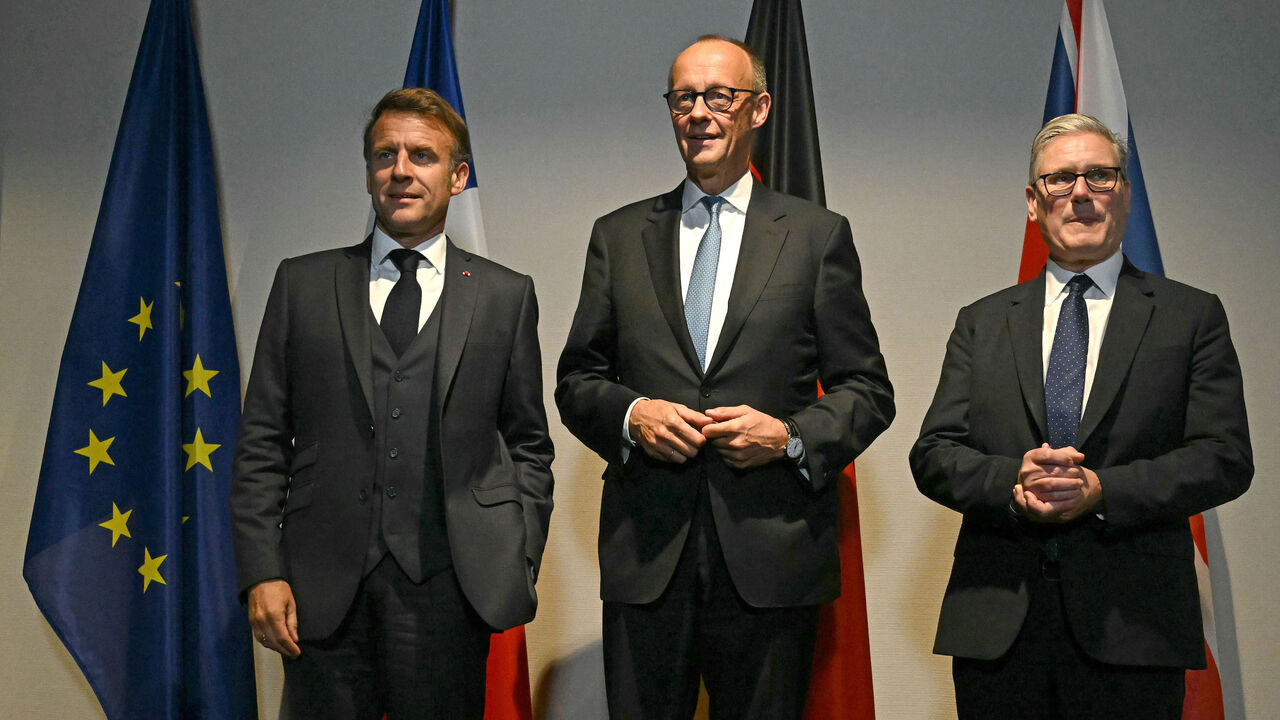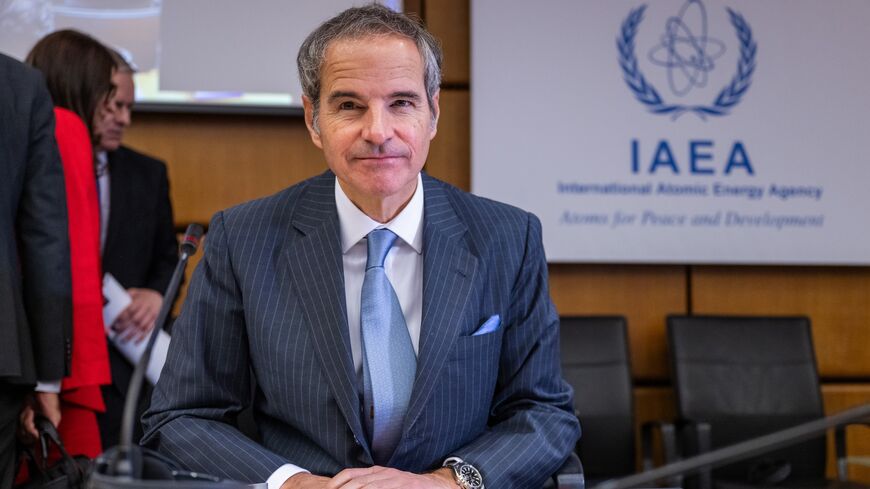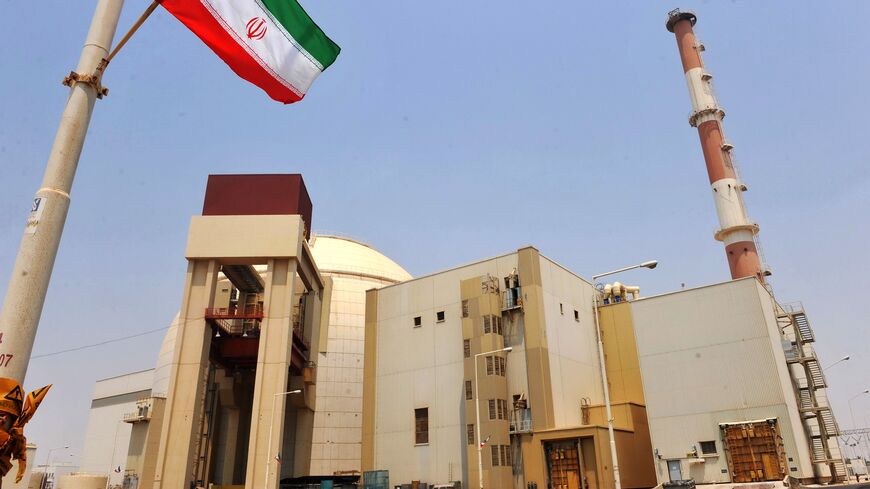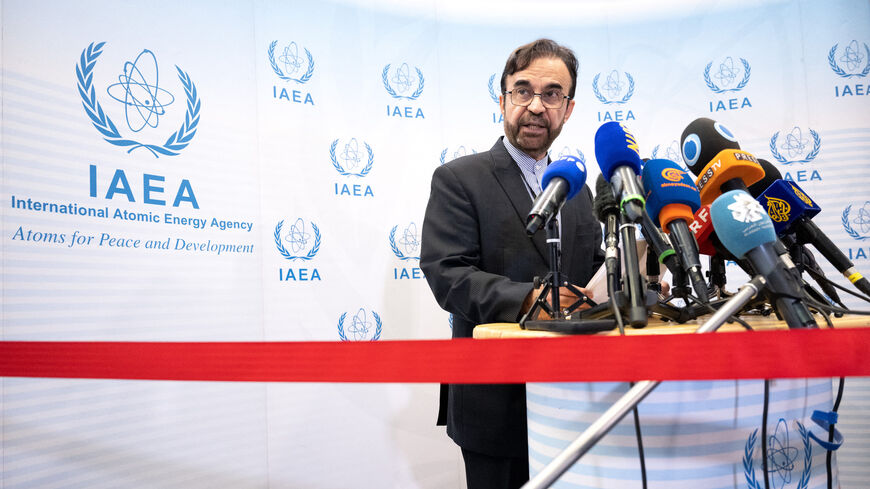UK, France, Germany trigger snapback sanctions on Iran
The three countries set an end-of-month deadline for Iran to cooperate over its nuclear program.

WASHINGTON — Britain, France and Germany have begun the process to reimpose United Nations sanctions on Iran, notifying the UN Security Council on Thursday that the Islamic Republic is in “significant” breach of the 2015 nuclear deal.
In their letter, obtained by Al-Monitor, the three countries state that “based on clear factual evidence, the E3 believe Iran to be in significant non-performance of its commitments under the [Joint Comprehensive Plan of Action], and hereby invoke the process known as the 'snapback' mechanism.”
Under UN Security Council Resolution 2231, the nuclear agreement’s remaining signatories can move to reinstate previously lifted UN sanctions — which include a conventional arms embargo, ballistic missile restrictions and a ban on producing nuclear-related technology — if Iran is deemed to be in noncompliance with the accord. The option to exercise the snapback mechanism expires on Oct. 18.
The nuclear deal negotiated by the Obama administration a decade ago imposed set curbs on the purity and amount of Iran’s enriched uranium stockpile in exchange for international sanctions relief. After President Donald Trump withdrew the United States from JCPOA in 2018, Iran a year later began violating its commitments under the landmark deal.
Prior to US and Israeli military strikes in June, Iran was enriching uranium to 60% purity, well beyond the 3.67% limit set by the JCPOA and just a short technical step away from weapons-grade levels. Iran is believed to have stockpiled enough highly enriched uranium before the war to produce roughly 10 nuclear bombs if further enriched.
The three European countries, collectively known as the E3, had warned they would move to reinstate the sanctions by Aug. 31 unless Iran resumed full cooperation with the International Atomic Energy Agency (IAEA), accounted for a stockpile of highly enriched uranium and reentered talks with the United States.
Iran’s semi-official Tasnim news agency reported that the European Union’s foreign policy chief, Kaja Kallas, and the E3’s foreign ministers informed their Iranian counterpart, Seyyed Abbas Araghchi, of their decision in a phone call on Thursday.
Tasnim quoted Araghchi as saying his country "will respond appropriately to this illegal and unjustified action by the three European countries in order to protect and secure its national rights and interests.”
Tehran has previously threatened to respond to snapback by withdrawing from the Nuclear Non-Proliferation Treaty, which would end the IAEA’s legal authority to oversee the Iranian nuclear facilities.
The snapback process to restore UN sanctions takes 30 days. In a joint statement on Thursday, the E3 said it would use the window “to continue to engage with Iran on our extension offer, or on any serious diplomatic efforts to restore Iran’s compliance with its commitments.”
In a bid to avert snapback, Russia's diplomats have put forward a draft resolution at the Security Council that would extend Resolution 2231 by six months. In a statement Thursday, Iran’s UN Mission in New York called on council members to back the resolution or face “grave consequences” for snapback.
“The E3’s reaction to the draft will ultimately show whether they are truly committed to diplomacy or pushing the crisis forward,” the mission said.
The E3 – France, Germany, and the United Kingdom – initiated a process to reimpose UN sanctions on Iran. Snapback sanctions are a direct response to Iran’s continuing defiance of its nuclear commitments. The United States supports the E3’s decision and urges Iran to engage in…
— Secretary Marco Rubio (@SecRubio) August 28, 2025
Secretary of State Marco Rubio welcomed the E3 decision and pledged that the United States would work with the Security Council to complete the snapback process.
“At the same time, the United States remains available for direct engagement with Iran — in furtherance of a peaceful, enduring resolution to the Iran nuclear issue,” Rubio said in a statement. “Snapback does not contradict our earnest readiness for diplomacy, it only enhances it.”
Tehran has rejected direct negotiations with Washington. The two countries held five rounds of Oman-mediated nuclear talks before Israel began bombing Iranian nuclear and military infrastructure on June 13.
The Iranian Parliament unanimously voted to halt cooperation with the IAEA after Israel launched its 12-day war in June. On Wednesday, Iran authorized the watchdog’s inspectors to visit the Bushehr commercial power plant that uses fuel supplied by Russia but continues to deny them access to the three nuclear facilities struck by the United States and Israel.
Speaking with reporters in Washington Wednesday, IAEA Director General Rafael Grossi said it was critical his agency restart inspections of Iran’s most sensitive nuclear sites of Fordow, Isfahan and Natanz.
“We have to go back there as soon as possible,” Grossi said. “There is no such thing as an a la carte inspection work.”
This developing story has been updated since initial publication.




